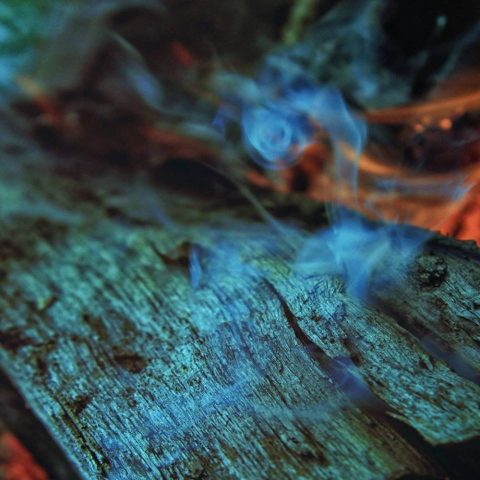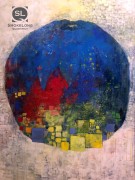I was so captivated by ‘Bone’ and am so happy to be able to talk to you today!
Thank you! As a writer, you know what it’s like to toss a story into the world, and how exciting it is when someone catches it. And thanks for the fabulous questions – you really made me think!
What a story, first of all. It crawled into my bones instantly, and through many subsequent reads, it has just clung and clung. So let’s start there:
One of my favorite pieces of writing advice (about, in this case, poetry, although it certainly applies to flash fiction) is: “You must be careful not to deprive the poem of its wild origins.” Without demystifying the story for us or where it began for you, what can you tell us about the idea of wild origins in general in your work, and how you manage to maintain them while still honing a piece to completion?
“Wild origin” – what a great way to describe that mystical, magical, indefinable spark of a story! When writing, I do feel like I’m stalking something wild through the brambles, and I have to be careful not to scare it away. Usually it begins with voice – a first line or a scrap of dialogue, like a rustling in the leaves, and I creep after it to see where it leads. If I look at it directly or try to name it – if I dare to wonder what it is or try to direct its path – I could lose it entirely. It’s an act of submission, really, not so much a making as a finding and following, a listening, requiring an openness to whatever happens … and also trust that I won’t end up in a ditch or devoured by spiders. It’s harder to maintain and recapture that feeling in the honing process, yes, but I find that if I focus on the voice, on the rhythm and pacing, on the sound of the words, I’m pulled back into the exhilaration of that initial pursuit. When I revise, there’s a lot of urgent whispering at my desk – one reason I find it hard to write in public places. I was a musician before I was a writer, and maybe that’s why I’m so focused on sound.
What’s your biggest writing challenge? Time? Space? Ideas? Tension? Endings? Other? What’s hardest for you, and do you have any strategies for overcoming it?
I have a ridiculously hard time actually sitting down and putting words on the page. I think about writing all the time, playing with sentences in my head, but I put off the actual writing until the last possible moment … or forever, if there’s no external deadline (see: stalled novels). It has to do with fear: I get overwhelmed with all the choices available, on so many levels, and I’m terrified I’ll choose wrong and ruin it forever. Ruth Ozeki articulated it beautifully in A Tale for the Time Being: “That’s what it feels like when I write, like I have this beautiful world in my head, but when I try to remember it in order to write it down, I change it, and I can’t ever get it back.” I’m trying to hold onto this quote from Shannon Hale: “When writing a first draft, I have to remind myself constantly that I’m only shoveling sand into a box so later I can build castles.”
One way I combat this fear and ensuing procrastination/paralysis is by inviting deadlines, usually by signing up for a class. All the stories I wrote in the last couple years originated in online workshops, most in Kathy Fish’s Fast Flash. I used to beat myself up about needing a deadline to produce anything, but now I recognize it as part of my process, and reach for the shovel.
Would you say there are common themes in your writing? And is this particular piece “in dialogue,” thematically, with your other work, or does it stand more on its own?
Sometimes I worry that I’m writing the same story, over and over. I find myself writing about people who feel lost in their own lives, unseen and unappreciated; people losing faith in themselves because they’re told repeatedly that what they see and value and are isn’t real or worthy; people longing for connection but unable to find it. I’m intrigued by the small moments that comprise a life, the tiny, daily decisions that add up to so much more, and the way people find themselves giving in, incrementally, until they reach a crisis point. “Bone” definitely belongs to that thematic family, although in revisions I worked to push it past my comfort level.
And poor “Hunter” – I realized after I submitted “Bone” that I had a little girl bite a boy named Hunter in another story, published last year in Jellyfish Review. Nothing personal, Hunters of the world! (but, you know, maybe try to be nicer, okay?)
Is there a story—written by someone else—that you return to for inspiration, or as a reminder of an intention or style you don’t want to lose or forget? What’s the story and what does it spark for you?
There’s a fabulous flash community on Twitter, and I’m amazed and inspired every day by the quality of writing I find linked there, in SmokeLong and so many other great journals, and also by how supportive flash writers are of each other. Naming one story feels a bit like picking teams in grade school, which never ended well for me, but I will mention one writer whose work inspires me to push beyond my comfort level: Elisabeth Ingram Wallace (hi, Lis!). She has this wildly imaginative style – feels like she’s pulling images out of herself and flinging them onto the page and letting them drip down, running into one another, not caring if it all makes sense – but it does! in a way you feel but can’t define, and don’t need to. It’s so carefully done, yet it seems effortless, organic. And funny – such humor and even sweetness amid utter blackness. Lis’s writing reminds me to let go and give way to those playful, wild impulses, and to trust the part of me that knows what it’s doing.
What are you working on right now? Got any big goals or news on the horizon for 2019?
I’m always working on a couple of novels. I dislike outlines – I feel they smother that “wild origin” you mentioned earlier – but it’s too hard to keep track of everything in a novel without some sort of guide, so I’m trying new ways of planning ahead without spoiling too much for myself.
I’m working on a (very basic) website, which should be live by the time this interview appears: didiwood.com.
Really, though, I’m just working on WORKING: getting words out of my head and onto the page. Being more open, playful, impulsive. Writing weirder and wilder. I’ve started a story about the Child Catcher in Chitty Chitty Bang Bang (did you know the character doesn’t appear in the novel by Ian Fleming but was added for the movie by co-screenwriter Roald Dahl?), and I’m excited to see where that goes (see: ditch, devoured by spiders).



 The core workshop of SmokeLong Fitness is all in writing, so you can take part from anywhere at anytime. We are excited about creating a supportive, consistent and structured environment for flash writers to work on their craft in a community. We are thrilled and proud to say that our workshop participants have won, placed, or been listed in every major flash competition. Community works.
The core workshop of SmokeLong Fitness is all in writing, so you can take part from anywhere at anytime. We are excited about creating a supportive, consistent and structured environment for flash writers to work on their craft in a community. We are thrilled and proud to say that our workshop participants have won, placed, or been listed in every major flash competition. Community works.